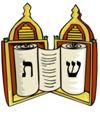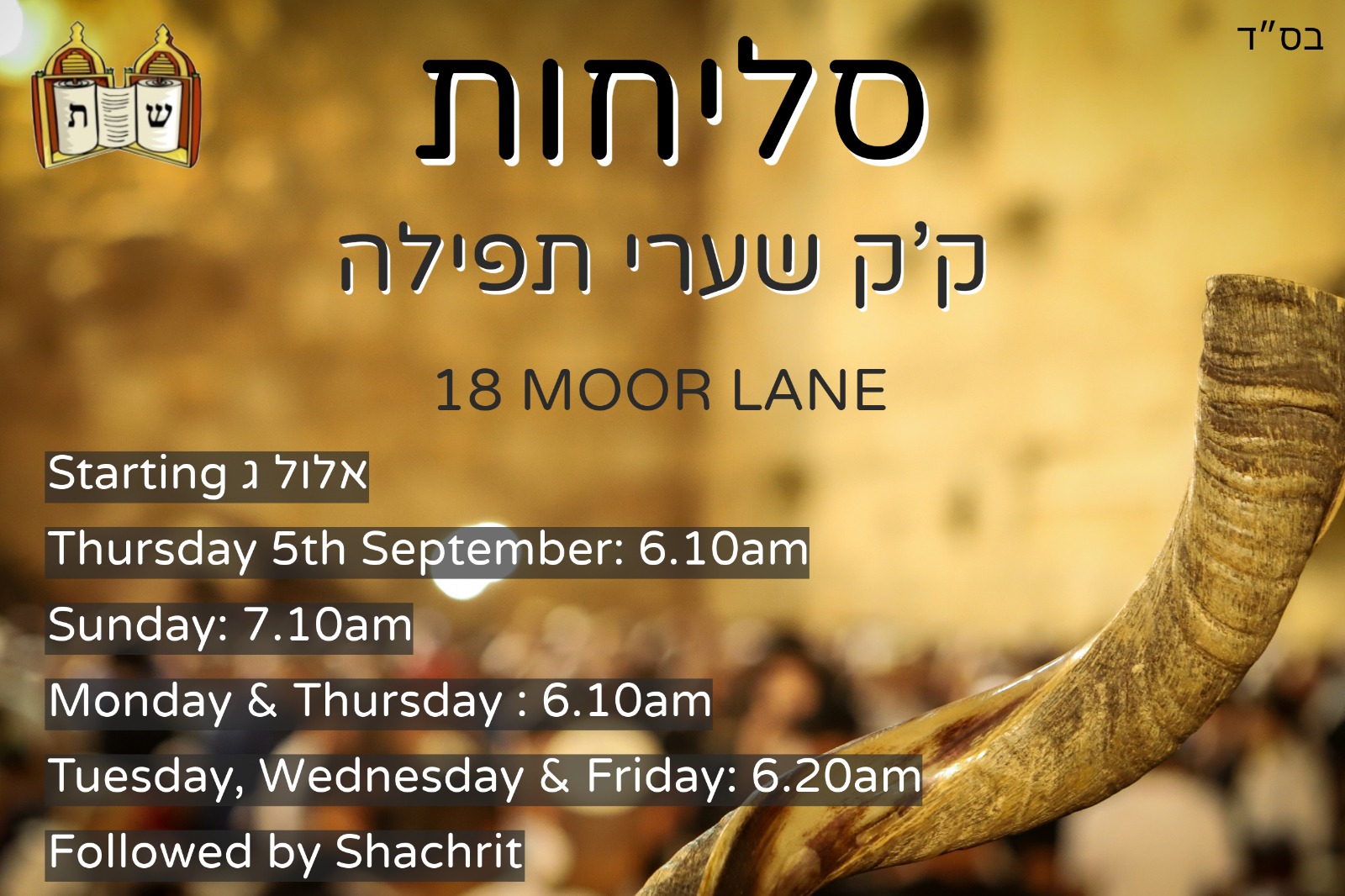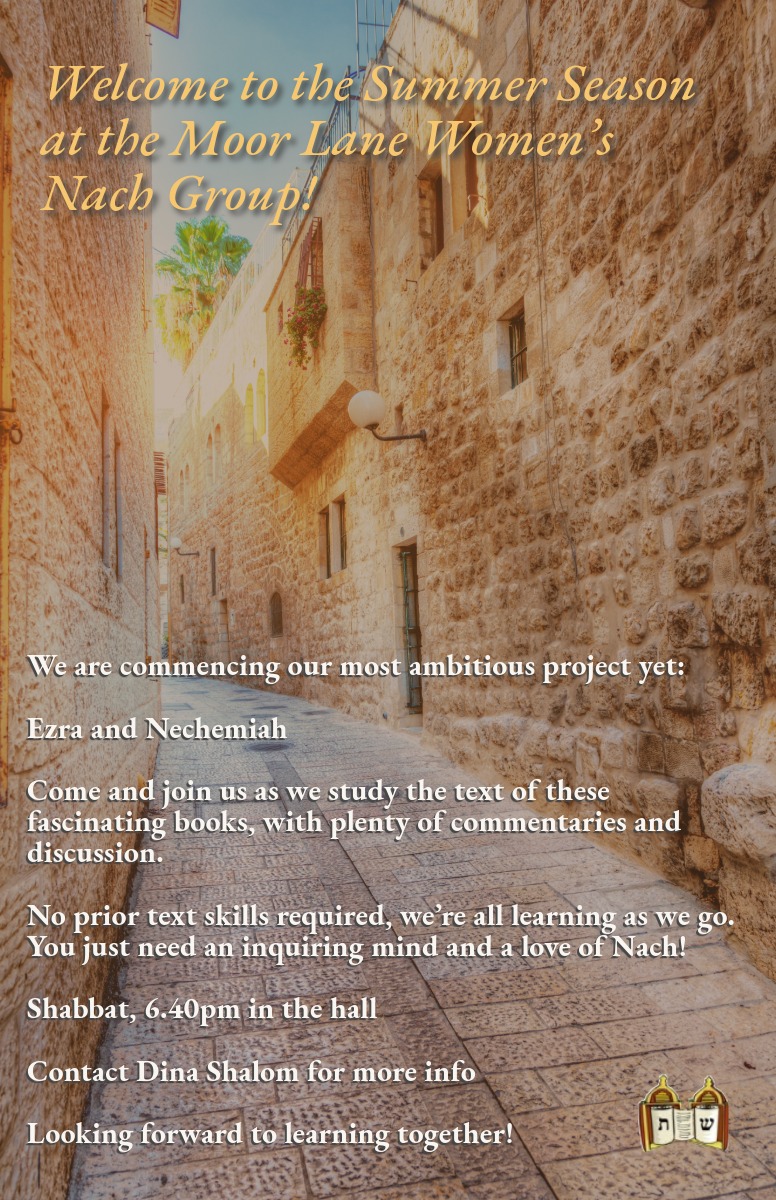
ק׳ ק׳ שׁערי תפילה

******

*****


*****
6:40 pm

******
לוח זמני תפלה לקיץ תשפ״ד
Summer Timetable 5784 – 2024
מוצאי שבת | ערבית )מוצ”ש( | שקיעה | סוף זמן קראת שמע | זמן שבת | פלג מנחה (תה״ד) | פלג מנחה (לבוש) | מנחה וקבלת שבת | תאריך | שבת פרשת |
Shabbat Ends | Arbit | Sunset | Shema to be read before | Candles to be |
| Earliest Candle lighting | Minha & Kabbalat Shabbat* | Date | Parasha |
PM | PM | PM | AM | PM | PM | PM | PM |
|
|
8:34 | 8:30 | 7:42 | 9:47 | 7:30 | 6:54 | 6:23 | 6:40 | 6/7 Sep | שופטים |
For those not in the Bet Hakeneset, but wishing to bring in Shabbat with the Kahal, candles should be lit about 30 minutes after the time listed for Minha and Kabbalat Shabbat, unless the time listed in the ‘latest candle lighting’ column is earlier, when candles MUST be lit by that time, in all cases
שבת
קרבנות
9:00 am
הודו
9:15 am
מנחה
6:30 pm
*************
Moshe tells Bnei Yisrael to appoint judges and officers in their cities. A bribe of even an insignificant sum is forbidden. Trees are not to be planted near Hashem's altar, as was the way of idolaters. Blemishes in animals designated for offerings and other points of disqualification are listed. The Great Sanhedrin is to make binding decisions on new situations, according to Torah criteria, to prevent the fragmentation of the Torah. A very learned scholar who refuses to accept the halachic decisions of the Sanhedrin incurs the death penalty. A Jewish king may have possessions and symbols of power only as commensurate with the honor of his office, but not for self-aggrandizement. He is to write for himself two Sifrei Torah — one to be kept with him wherever he goes, so that he doesn't become haughty. Neither the Kohanim nor the Levi'im are to inherit land in the Land of Israel. Rather, they are to be supported by the community, by a system of tithes.
All divination is prohibited. Hashem promises the Jewish People that He will send them prophets to guide them, and Moshe explains how a true prophet may be distinguished from a false one. Cities of refuge are to be provided an accidental killer to escape the blood-avenger from the deceased's family. However, someone who kills with malice is to be handed over to the blood-avenger. Moshe cautions Bnei Yisrael not to move boundary markers to increase their property. Two witnesses who conspire to frame a third party are to be punished with the very same punishment that they conspired to bring upon the innocent party.
A kohen is to be anointed specifically for when Israel goes to war, to instill the nation’s trust in Hashem. Among those disqualified from going to war is anyone who has built a new house but not lived in it yet, or anyone who is fearful or fainthearted. An enemy must be given the chance to make peace, but if they refuse, all the males are to be killed. Fruit trees are to be preserved and not cut down during the siege. If a corpse is found between cities, the elders of the nearest city must take a heifer, slaughter it, and wash their hands over it, saying that they are not guilty of the death.
Ohr Somayach Institutions www.ohr.edu

חודש הרחמים והסליחות
וידוע שבימים אלה אנו קרובים יותר לה' יתברך,
והוא ממהר לשמוע תפילות. כמו שדרשו “אני לדודי ודודי לי”, ראשי תיבות
אלול. וכן בפסוק “ובא לציון גואל ולשבי פשע ביעקב”,
רמוז חודש “אלול”. וכתב רבינו יונה בספר היראה בזו הלשון,
“משנכנס אלול עד מוצאי יום הכפורים יהיה ירא וחרד מאימת יום הדין”.
ובזכות התשובה בימים אלה, אנו עתידים להגאל, כמו שנרמז בפסוקים שאמר דוד המלך,
“לדוד ה' אורי וישעי”, אורי, בראש השנה, וישעי, ביום
הכפורים. ומסיים דוד המלך,
“לולא האמנתי לראות בטוב
ה'”, ופירשו רבותינו (בברכות ד.), שהיה דוד המלך מתיירא (מפחד) שמא יגרום
החטא ולא תבא הישועה, ולכן יש ניקוד (נקודות) מעל המילה “לולא” האמנתי
לראות בטוב ה', שרצונו לרמוז בזה על חודש “אלול”
(אותיות לולא), שבזכות תשובתינו בימים אלה נוושע ביום הדין.
וכתב הגאון רבי דוד עמר ז”ל, בספר תפלה
לדוד (סי' ריב), שבחודש אלול ובעשרת ימי תשובה, נכון מאד לכוין
בברכת “השיבנו אבינו לתורתך” שבתפלת שמונה עשרה, ולהזכיר כמה משמותיהם
של אלה שנטו מדרכי ה' ותורתו, ויצאו לתרבות רעה, וביחוד אם הם קרוביו. והביא כל זה
מרן רבינו הגדול זצ”ל הכ”מ בספרו חזון עובדיה (עמוד כה). וכמו כן
בודאי שראוי לאדם להתפלל גם על עצמו, שיזכה לשוב בתשובה, ולעלות מעלה מעלה
בתורה וביראת ה'. וגם כל בקשותיו האחרות, יהיו לשם שמים, שאם תהיה לו
פרנסה טובה ובריאות טובה, יוכל להתחזק עוד ועוד בעבודת ה'.
ובאמת שאם נתבונן, הלא נראה כל איש ואשה, כמה
אנו מאריכים בתפלה על קרובינו שחלילה אינם בקו הבריאות, או מעוכבי זיווג וכדומה.
והלא הדברים קל וחומר, כי הכאב על מי שאינו הולך בדרך ה' הוא גדול פי כמה וכמה,
שמאבד עצמו מחיי העולם הבא, ואינו מזכה את עצמו בזכויות רבות לחיי עולם הנצח, אשר
כל קורות האדם בזה העולם הם כאין וכאפס לעומת חיי העולם הבא.
וזכור לנו, שאחר פטירת
רעייתו של מרן רבינו זצ”ל, היה מרבה בתפלות ובלימוד תורה לעלוי נשמתה, והיה
מזכיר מה שכתבו המקובלים, שיראה אדם את קרובו הנפטר כאילו הוא עומד ומתחנן לפניו
שיצילו מאש אוכלה. כי צורך האדם בעולם הבא לזכויות ומעשים טובים בכדי לזכות בחיי
העולם הבא, הוא גדול לאין שיעור מכל צרכיו בזה העולם השפל והחולף.
והגאון רבי דוד עמר הנזכר, הביא בספרו את הנוסח
הנכון למי שרוצה להוסיף שמות קרובים בברכת “השיבינו”, שיאמר בתוך הברכה,
אחרי אמירת “השיבנו אבינו לתורתך וקרבנו מלכינו לעבודתך והחזירינו בתשובה
שלימה לפניך”: יהי רצון מלפניך ה'
אלהינו ואלהי אבותינו, שתחתור
חתירה מתחת כסא כבודך להחזיר בתשובה שלימה כל פושעי ישראל, ובכללם תחזיר בתשובה
שלימה את (יאמר את שם הקרוב ואת שם אמו,
כגון דוד בן אסתר), כי ימינך פשוטה
לקבל שבים, ברוך אתה ה' הרוצה בתשובה.
(ונכון שבסיום הברכה כשמזכיר את שם ה', יכוין שניקוד שם
ה' בכתיבתו בברכה זו, הוא בסגול, כפי שמודפס בסידורים המדויקים).
ויהי רצון שהשם יתברך יחזיר את כל פושעי ישראל
בתשובה שלימה וידעו תועי רוח בינה, ומלאה הארץ דעה את ה' כמים לים מכסים
The Month of Mercy
and Forgiveness
It is well-known that during these
days we are closer to Hashem and he hears our prayers more quickly than usual,
as our Sages have expounded the verse, “Ani Le’Dodi
Ve’Dodi Li” (“I am to
my beloved and my beloved is to me”) which is an acronym for the word “Elul.”
Similarly, the month of Elul is also hinted in the verse, “Uva Le’Zion Go’El
Ul’shaveh Fesha Be’Yaakov.” Furthermore,
Rabbeinu Yonah writes in his Sefer Ha’Yir’ah: “From the beginning of Elul until
the conclusion of Yom Kippur, one should be filled with fear and trepidation
over the Day of Judgment.” In the merit of the repentance during these days, we
shall one day be redeemed, as is hinted in the verses composed by King David,
“A Psalm by David, Hashem is my light and salvation”: “My light” on Rosh
Hashanah “and salvation” on Yom Kippur. King David ends this Psalm by saying,
“Were it not that I believe that I should see the goodness of Hashem,” and our
Sages explain (Berachot 4b) that King David feared that sins might impede the
salvation and thus, the word “Luleh” (“Were it not,” also the
same Hebrew letters as “Elul”) is dotted in the scripture in order to allude to
the fact that in the merit of our repentance during the month of Elul, we shall
be saved on the Day of Judgment.
Hagaon Harav David Amar zt”l
writes in his Sefer Tefillah Le’David (Chapter 212) that during the month of
Elul and the Ten Days of Repentance (the ten days between Rosh Hashanah and Yom
Kippur), it is especially worthy to recite the blessing of “Hashivenu Avinu
Le’Toratecha” (fifth blessing of the Amidah prayer which deals with
repentance) with proper concentration and to mention the names of some
individuals who have strayed from the proper path of Hashem and His Torah,
especially if they are one’s relatives. Maran Rabbeinu Ovadia Yosef zt”l
quotes this in his Chazon Ovadia-Yamim Nora’im (page 25). One should certainly
pray that one merit repenting fully on his own and continue to ascend higher
and higher in spirituality.
Indeed, if we stop and think for a
moment, do we not all pray lengthily for our relatives who, G-d-forbid, are not
in the best of health or have yet to find their marriage partners and the like?
Certainly the pain one feels for an individual who does not follow the path of
Hashem is much greater, for such an individual loses his share in the World to
Come and misses out on countless merits in the Eternal World; anything a person
can experience in this world pales greatly in comparison to life in the World to
Come.
We remember that when Maran zt”l’s
wife passed away, he would learn and pray a substantial amount in order to
elevate her soul. He would mention what the Mekubalim say that one should
imagine his deceased relative as though he is standing before him and begging
him to save him from a raging inferno. One’s need for merits and good deeds in
order to merit entry in the World to Come is infinitely greater than any
physical need one may have in this lowly, fleeting world.
The aforementioned Hagaon Harav
David Amar quotes in his work the correct text for one who wishes to insert
names of relatives in the blessing of “Hashivenu.” After reciting “Hashivenu
Avinu Le’Toratecha Ve’Karevenu Malkeinu La’Avodatecha Ve’Hachazirenu Bitshuva
Shelema Lefanecha,” one inserts: “May it be Your will, Hashem our G-d and
the G-d of our fathers, that You dig a tunnel under Your Holy Throne to accept
the repentance of all of the sinners of Israel, and similarly may You cause
so-and-so (insert name) son/daughter of so-and-so (insert mother’s name) to
repent fully, for Your right hand is outstretched to accept those who are
repentant,” then conclude the blessing, “Baruch Ata Hashem Ha’Rotzeh
Bitshuva.” Here is the actual Hebrew text one should recite in the Amida:
יהי רצון מלפניך ה' אלקינו ואלקי אבותינו שתחתור
חתירה מתחת כסא כבודך להחזיר בתשובה שלימה לכל פושעי ישראל, וכן תחזיר בתשובה
שלימה את פלוני בן פלונית, כי ימינך פשוטה לקבל שבים.
It is correct that when one
concludes this blessing upon reciting the name of Hashem one should have in
mind that this name of Hashem is punctuated with the “Segol” mark, as
is printed in precise Siddurim; one should concentrate on this but not utter
it.
May Hashem return all sinners of
Israel to Him through complete repentance and may the land be filled with the
knowledge of the Hashem like the waters that fill the sea.